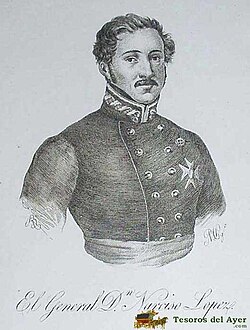In his book The Coming of the Glory (1949), author John S. Tillery relates that on July 14, 1868, a visitor walked into the office of Abram Joseph Walker, Chief Justice of Alabama’s Supreme Court. Walker had served as Associate Chief Justice from 1856, when the Legislature of Alabama had elected him to that post, until 1859 when he became Chief Justice. His tenure as Chief Justice would end in 1868. The visitor, a New York carpetbagger named E.W. Peck, had a favor to ask. Would he (Walker), and two other Alabama Justices, peacefully vacate their places on the bench and make way for he (Peck) and two of his (carpetbag) associates?
Of course the reference to a “peaceful” transition was no less than a thinly veiled threat. Major General George Meade, Commander of the Military Occupation in the District of which Alabama was a part, had issued the following order just shortly before this event:
Whenever the Major General Commanding is satisfied, from evidence produced, that the civil authorities fail to do their duty, then prompt action will be taken by him, both for the punishment of criminals, and the removal from office of derelict civil officers.
Federal troops were stationed nearby to carry out Chief Justice Walker’s removal from the bench, by force if necessary.
The process by which radical elements assumed control over the South’s governing system was in no way unique to Alabama, and such coercion was not limited to officeholders and government officials.
Benjamin “Beast” Butler, commanding the occupation of Louisiana, had issued the infamous Order No. 28 on May 15, 1862:
As the officers and soldiers of the United States have been subject to repeated insults from the women (calling themselves ladies) of New Orleans in return for the most scrupulous non-interference and courtesy on our part, it is ordered that hereafter when any female shall by word, gesture, or movement insult or show contempt for any officer or soldier of the United States she shall be regarded and held liable to be treated as a woman of the town plying her avocation.
In other words, these ladies were to be treated as prostitutes by occupying soldiers of the “glorious” Union Army.
In addition to establishing judicial and legislative control and terrorizing the citizenry, plunder and robbery were also common. An honest Northerner, Dr. E. Benjamin Andrews of New Hampshire, published The United States in Our Time in 1903. He noted that when former Union General Robert Kingston Scott of Pennsylvania was put into office as the carpetbagger Governor of occupied South Carolina on July 6, 1869, the State’s debt was five and one half million dollars. By the end of Scott’s tenure in office, “no public works of any appreciable importance had begun”, and yet the debt had escalated to eighteen and one half million dollars. The State of South Carolina, which had produced such stalwarts of American independence as Charles Cotesworth Pinckney, John Rutledge and Francis Marion, was now being villainously pillaged by the Union which it had helped form.
These few instances of rapine by the armies and governing authorities that occupied the South during “reconstruction” do not even scratch the surface. Similar occurrences were commonplace on a near daily basis in every occupied State throughout the South.
Simultaneously, while former Confederates and secession sympathizers were disarmed and stripped of their right to choose their elected officials, gangs of armed thugs—termed Union Leagues—roamed the streets of Southern towns. Their purpose was nothing less than intimidation and the imposition of the will of their political masters on a helpless people, a people who had asked prior to the outset of hostilities in 1861 to simply “be left alone.”
Robert E. Lee, as he surrendered his troops at Appomattox Court House, had been given what he believed to be generous terms by Ulysses S. Grant. For that reason, he would not allow a cross word about General Grant in his presence for the remainder of his life. But, during “reconstruction” Grant’s terms were ignored by the occupying forces and the radical government that controlled and directed their policies.
Prior to the war the South was very wealthy, economically, as well as in spirit. Afterwards, it was a ruined, devastated, looted and plundered shell of its former self.
As Lord Acton had intimated to General Lee in his 1866 correspondence, the victory of States Rights over forced consolidation “would have blessed all the races of mankind by establishing true freedom purged of the native dangers and disorders of Republics.” But the outcome of 1865 dictated, literally, that consolidation would reign for at least the next century and a half.
Economically, over the last 100 years the South has recovered in spite of the great odds inflicted purposefully against it. But, if we are to once again become a blessing to “all the races of mankind”, the Southern spirit of rugged individualism must not succumb to the forces of political correctness, the latter of which continues the process of “reconstruction” today.
Therefore, the Southern traditions of peace, prosperity, liberty, morality, true federalism and self-determination must be reasserted. It was these characteristics that formed the America of our founding era. These traditions made our voluntary union unique and set it apart from past failed efforts in human governance. If the American ideal is to survive, the Southern tradition must once again become its driving force.






